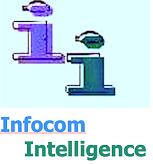Some reflexions from the World Economic Forum of 2006: technology, convergence, strategy and innovation.
Technology
Craig Barret, Intel= "advances which have the strongest impact usually come from start-ups... Major challengers to software giant Microsoft- such as Yahoo and Google - emerged from a university environment.
Geoffrey Moore, the father of Moore's law= "Over the last 5 years, the technology sector has continually diversified in unexpected ways... so what should we paying attention to that wasn't on our radar 2 years ago?"
Martin Sorrell, WPP= " the digital wallet technology developped by NTT DoComo allows users to make small purchases by zapping signals to a point-of-sale reader. A plethora of other applications for these Felica chip-equipped phones is emerging, enabling paperless ticketing, and promotions and premiums downloadable from billboards, to name just a few."
Bill Clinton, former President of USA= "Because of globalization and technologies like the Internet, the opportunities for making such impact have increased... The power of private citizens to do public good is greater than at any time in history."
World Economic Forum studies have demonstrated a very high correlation between national economic competitiveness and the development of information and communication technologies (ICT).
Akil Beshir, Telecom Egypt= "killer apps are needed to drive broadband penetration... In some countries, such as Korea, online games have provided that incentive to consumers. However, the content or online services that eill provide a stimulus to demand will vary from country to country. Knowledge of the local market is key."
Convergence
The integration of data, voice and video across networks and devices is opening the door to a wave of new products and services, but most businesses will have to take huge risks and reboot their business models if they are going to survive and thrive.
Michael Wolf, MTV Networks= "older audiences are cocooning around large plasma TV screens, young audiences are going to much samller screens so they can experience video at any time, on demand, making prime time all the time."
Michael Fries, Liberty Global= "iPod is a success for 2 reasons: it is really simple and affordable."
Glenn Hutchins, Silver Lake Technology= "competition exists at the product level, but that industry mut reorganize business models by fundamentally changing the process to deliver the converged product... Why did Dell win in the PC world? Because they had a superior business model, not a superior product. Take Google- a new product and new business model."
Strategy
Ian Davis, McKinsey="our studies suggest that up to 60% of a company's stock price can only be explained by the market's view of its long-term growth prospects. Successful companies, are those that can simultaneously plan and execute on short-term, medium-term, and long-term horizons."
Gary Hamel, London Business School= "strategy is essentially a creative process that defines conventional wisdom, but that the notion of strategy is being devalued by many corporations and is often mixed up with planning or marketing... the quality of strategy is dependent on new strategic options. One needs to make the process from beginning to end as transparent as possible in order to create a real-time conversation of where the company is going."
Innovation
Gary Hamel, London Business School= "innovation is a difficult process, most companies are organized to replicate things and have replication DNA as opposed to innovation DNA... A good metric is return on investment in human capital".
Marissa Mayer, Google= "Google also gives one day a week to very employee to work on new ideas and offer large bonuses to high performers."
Smaller companies are opportunistic with innovation while larger companies are more systematic over innovation.

A blog on the convergence of info-communications industries: communications, computing, electronics, entertainment, publications and education. Strategic, technological and financial analysis. English and French blog. Cette chronique traite de l’évolution des industries de l’information et des communications et couvre des aspects stratégiques, technologiques et financiers, comme l’économie du savoir et de l’innovation. L’auteur est Associé principal de Infocom Intelligence.
Labels
finance
(58)
strategy
(39)
innovation
(36)
technology
(29)
Internet
(25)
mobile internet
(25)
stratégie
(21)
applications
(20)
business models
(19)
mobile technologies
(17)
venture capital
(17)
Apple
(13)
télécommunications
(13)
consumer internet
(12)
media
(12)
telecommunications
(12)
mergers and acquisitions
(11)
video games
(11)
wireless
(11)
technologie
(10)
Android
(9)
technologies de l'information et des communications
(9)
téléphones intelligents
(5)
No comments:
Post a Comment